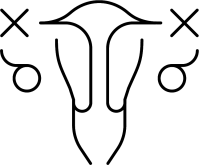
Spay / Neuter
Why Spay/Neuter Your Cat?
The most important reason for spaying or neutering is simply that there are too many unwanted litters of kittens being born. Millions of cats are done away with each year by local pounds. The vast majority of these beautiful creatures would be accepted for adoption with loving families, but there simply aren't enough families seeking cats to give all of these animals a good home.
Just one un-spayed female cat can produce three litters of kittens per year, with an average of five kittens per litter. Many unwanted cats that aren't done away with or adopted are often abandoned by their owners and become feral cats. It is estimated that there are as many feral cats as there are cats that have loving homes.
Feral cats often carry diseases that they pass on to other pets. By having your cat spayed or neutered, you can be sure that your pet will not contribute to this growing problem. Un-spayed female cats are in heat several times each year. By spaying your cat, you'll prevent many unwanted behaviors, including yowling and spraying. You'll also prevent the need to confine your precious pet for several weeks out of each year. Male cats that haven't been neutered also pose several problems. Mature male cats often feel a desire to “mark their territory”. Also, the mating instincts in un-fixed male cats can't be controlled, and they will often wander off for days at a time looking for a female that is in heat. Many male cats wander around and get lost. You can avoid this by neutering your's. A spayed or neutered cat is a healthier cat. Female cats that are spayed before their first heat will have a lower risk of mammary cancer, and they're unable to develop pyometra, a very serious uterine condition.
Male cats that have been neutered are less likely to be involved in catfights over females, or of developing problems with their prostates. Cats that have been “fixed” are often more friendly with their owners than cats that haven't been fixed. Not only are they more friendly, but there are also fewer unwanted behaviors for their owners to deal with. It's a lot easier to have a good relationship with your cat when you don't have to deal with all of the unfortunate situations that accompany a pet as it reaches maturity.
Having your cat spayed or neutered will most likely save you money in the long run. First, you won't need to replace furniture that has been picked, gouged, chewed, or wet on by a female cat in heat, or a male cat marking his territory. You'll also save a lot of money by preventing health problems in your cats. And the small fee for having your cat spayed or neutered will pay dividends down the road by avoiding unwanted litters of kittens.
Why Spay/Neuter Your Dog?
The most effective and humane way of controlling the stray dog population and preventing unwanted pregnancies. Significantly reduces the risk of disease and behavioral disorders in both males & females.
Male Dogs
• Reduced incidence of prostate disease
• Prevents testicular tumors
• Reduces incidence of peri-anal adenoma (a common type of tumor)
• Reduces incidence of some hormonal skin diseases
• Reduces undesirable behavior e.g. aggression, sexual misdemeanors, wandering, territorial scent marking
Female Dogs
• Reduces the incidence of mammary cancer, the commonest tumor seen in the bitch
• Prevents uterine and ovarian cancers
• Prevents pyometra, a life-threatening uterine infection
• Reduces incidence of diabetes melitus
• Prevents hormonal related anemia
• Reduces incidence of false pregnancy
• Reduces incidence of hormonal skin diseases.
• Reduces undesirable behavior e.g. aggression, wandering and sexual misdemeanors
• Prevents estrus behavior and related nervous behavioral disorders during estrus
Common Misconceptions About Spay/Neuter
Myth: Female dogs need to have a litter of puppies or dogs need to mate to mature and develop their character.
Truth: Absolutely no scientific proof to this.
Myth: Neutered animals are less playful.
Truth: Again, complete nonsense. A neutered animal enjoys playtime as much as an un-neutered dog. Particularly important is that a neutered animal is generally more predictable, more obedient and safer to play with children.
Myth: Neutered animals get fat.
Truth: Correct exercise and food management (i.e. lower calorie intake) allows neutered animals to maintain absolutely normal body condition and conformation. Obesity in neutered animals is usually the result of incorrect exercise and feeding.
This year, millions of animals will be euthanized in animal shelters around the world, and millions more will be abandoned to die on the streets. All these deaths could have been prevented—through spaying and neutering. Every single stray cat, every neglected dog came from an animal who wasn't spayed or neutered.
Spaying and neutering is the most important thing we can do to help dogs and cats. By preventing animals from being born and subsequently abandoned or given away to irresponsible people, we prevent animals from being hit by cars, attacked by other animals or cruel people, stolen by laboratory dealers, used as “bait” by dogfighters, or simply stuck outside to die of starvation, exposure, or neglect.
Each and every one of us can make a difference. Please, make a pledge right now to take personal responsibility, not just for neutering your own companion animals, but also to neuter or spay every unsterilized animal you encounter. Is there an unneutered cat hanging around the back porch? Does your neighbor have an unaltered dog chained up in the yard? Is your coworker giving away a litter of kittens? Provide information on spaying and neutering and ask animal guardians when they plan to have the surgery done. Be persistent. If they make excuses, offer to have the animals altered yourself.
It is estimated that one unaltered female cat and her offspring can produce 420,000 cats in just seven years. If we pass by just one unsterilized animal without seeing to it that he or she is spayed or neutered, we might as well be turning our backs on thousands of unwanted animals. Neuter early! Kittens and puppies can be neutered when they are as young as 8 weeks of age. Neutering before animals reach 6 months of age prevents deadly cancers of the reproductive system.
